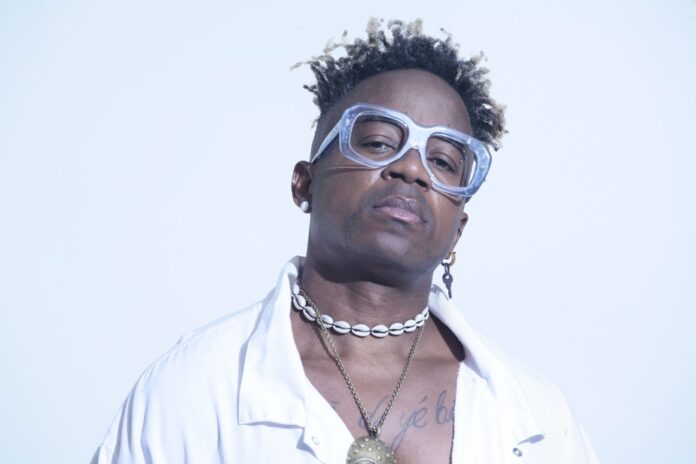The 49-year-old Cameroonian singer, songwriter, guitarist and percussionist Blick Bassy returns to Quebec as part of the Festival international Nuits d’Afrique after a four-year absence. This time, with its futuristic African aims.
“Coming from the Cameroonian diaspora allows us to compare perspectives and it allows us to take stock of what we have been taught. To relativize with our daily life and to judge the state of things with what we have on the table. »
Expatriated to France since 2005 in a small village in the South, near Saint-Émilion, between Bordeaux and Libourne, Blick Bassy explains his vision of Afro-futurism.
Five albums have been published since Léman, released in 2009, sung in French, English and the Bassa language, and which is intended as a kind of travel diary. His album entitled 1958, in which he pays tribute to Ruben Um Nyobé, hero of the Cameroonian anti-colonial resistance, won him the SACEM Grand Prix for world music in 2019.
Mádibá, released this year, is an ode to water with its discreet synths, its clear and soft voice, embellished with a few instruments here and there. A feverish and moving disc where the atmosphere continues to transport you. The 12 songs that make up the album are in the Bassa language.
In Cameroon, there is as much music as there are tribes, underlines the singer. “There really isn’t a unique Cameroonian sound. The difference between Cameroon and Mali, for example, is that there is Bambara; among the Bassa, music is the assiko. So there is not really an overall Cameroonian sound. But there is always a dance that comes with every music. »
The Bassa language, spoken by the tribe he comes from, is understood by about 30 million people, but only 2 million speak it fluently.
“To accept the language of the other is to tell him that we love him, admits Blick Bassy. Pronouncing someone’s name well is a gesture of love in itself. Speaking with an accent can embarrass other people. Try to make an effort to speak the other’s language. It is the small gestures that are essential. »
More than 300 languages are listed in the country of Manu Dibango, Cameroon. “Yet the two official languages are French and English. That makes people who are completely disconnected from their culture. »
Softness and sensitivity, the voice of Blick Bassy has such a force from bass to treble, such an identity, that it comes to monopolize the attention; in his singing, flows of different emotions are perceptible.
The artist also takes the pulse of the arrival of new technologies in our lives, such as social networks and continuous news channels. “My approach is inspired by this kind of sound chaos, I want to go to the essential, inside the emotion with little things that would sublimate it, bring vibrations. That’s the job I’m trying to do. And silence is part of the breaths, like a short break before a new start. »
It is the paradoxical mixture of music that is both rich and minimalist. “I see my music as a construction with reliefs to constitute a narrative. But the roots are still there, a mixture of European and African cultures. »
Blick Bassy has already come to the Montreal International Jazz Festival in 2017, with a tribute to pre-war bluesman Skip James, and a second time in 2019.
Two musicians accompany him on stage for this visit. “The technology is beautiful today, everything happens in real time. Live, he explains, I have a microphone for the lead and a microphone that goes through a pedal and does harmonies, it’s easier to manage.
“I think it’s going to be surprising for people because with Mádibá I changed my staging. It is a slightly more modern approach, but which allows you to see another part of me, to find these traditions within other sound spaces. »















